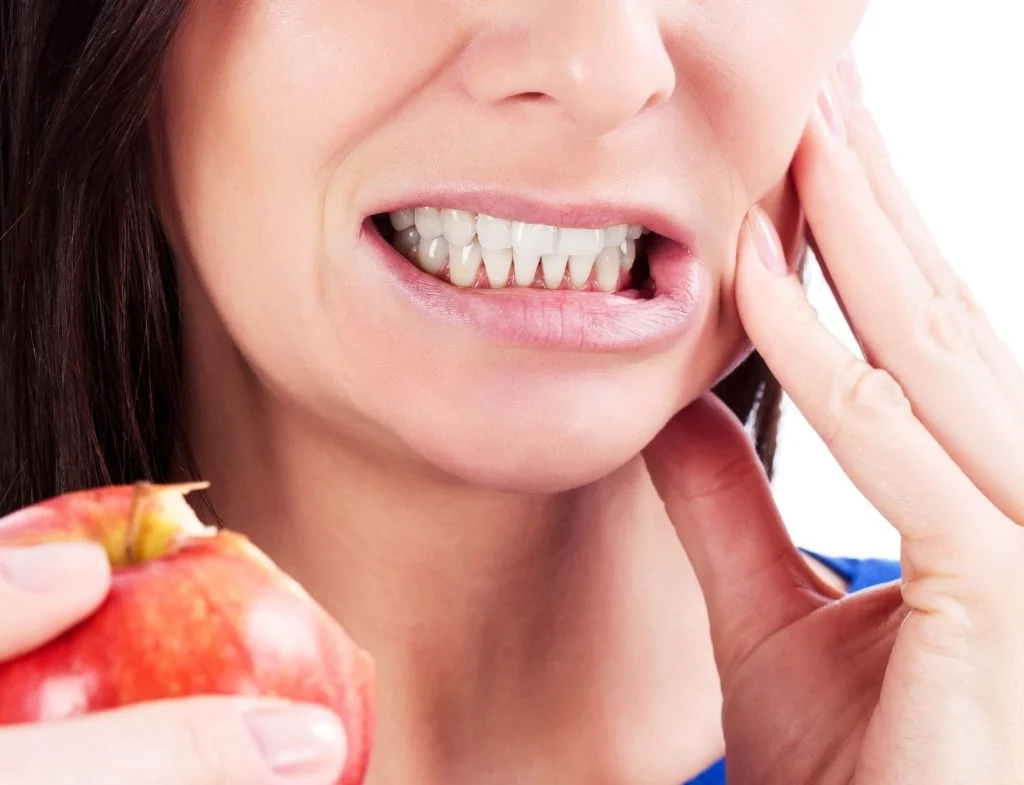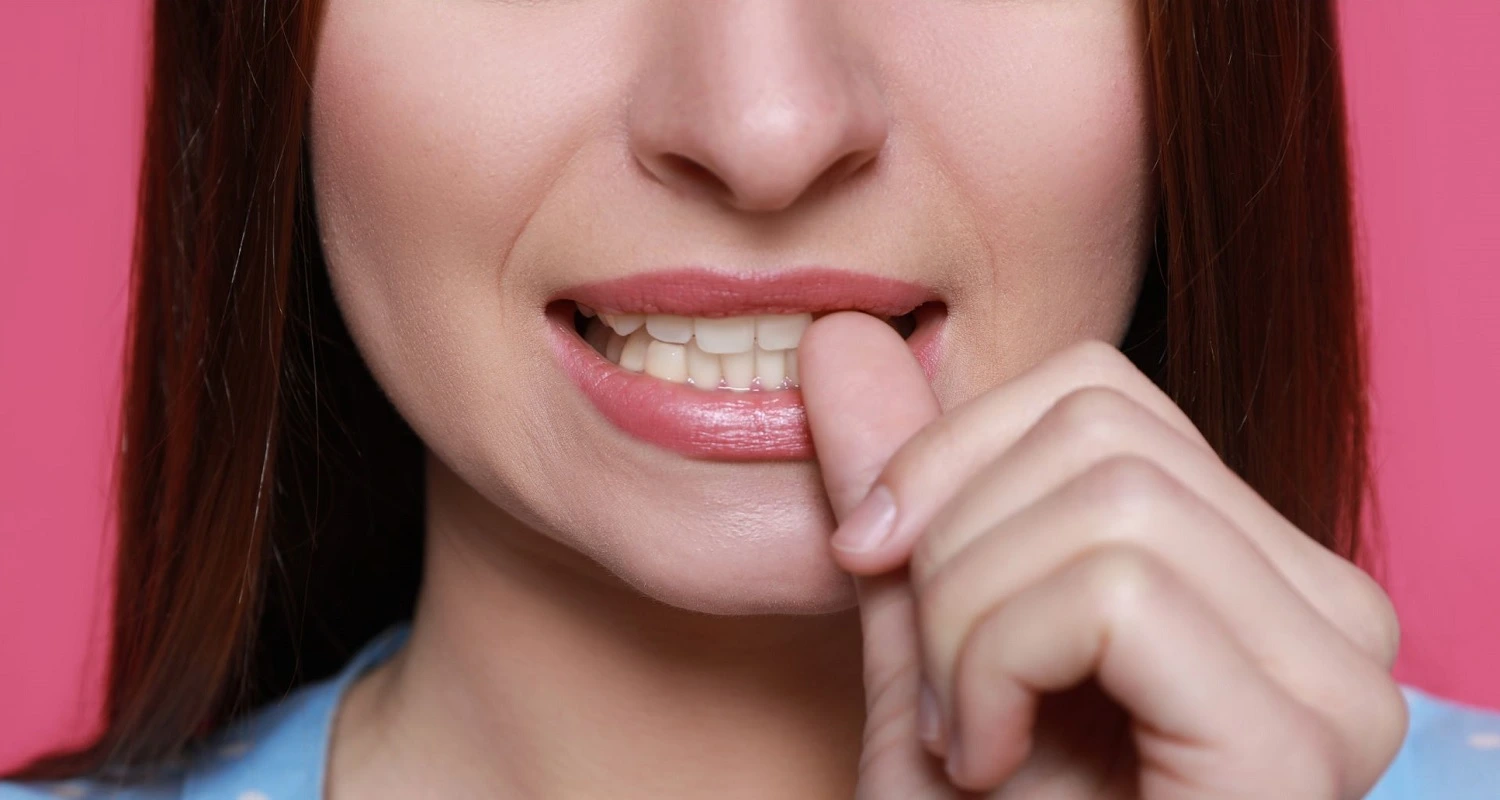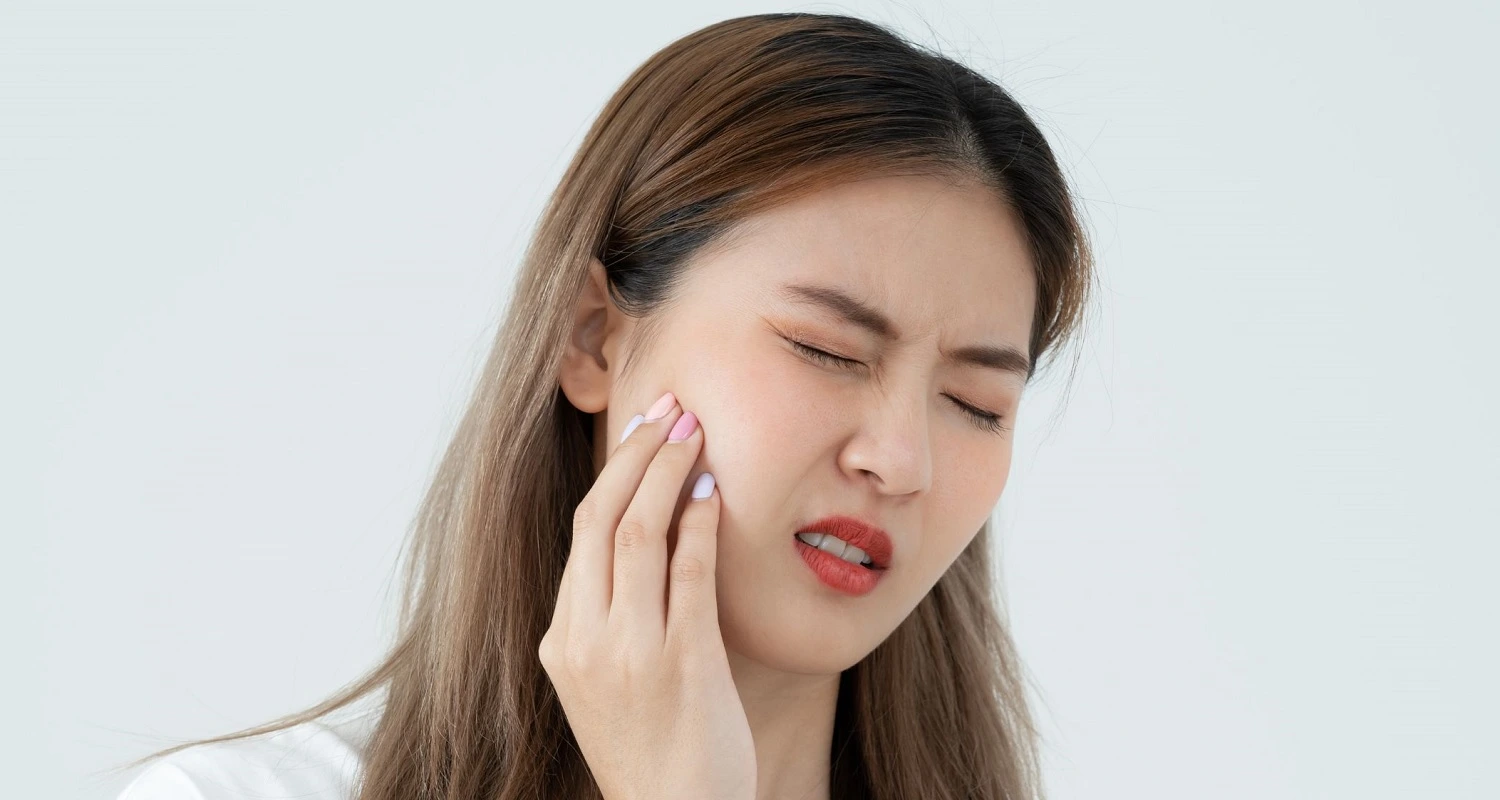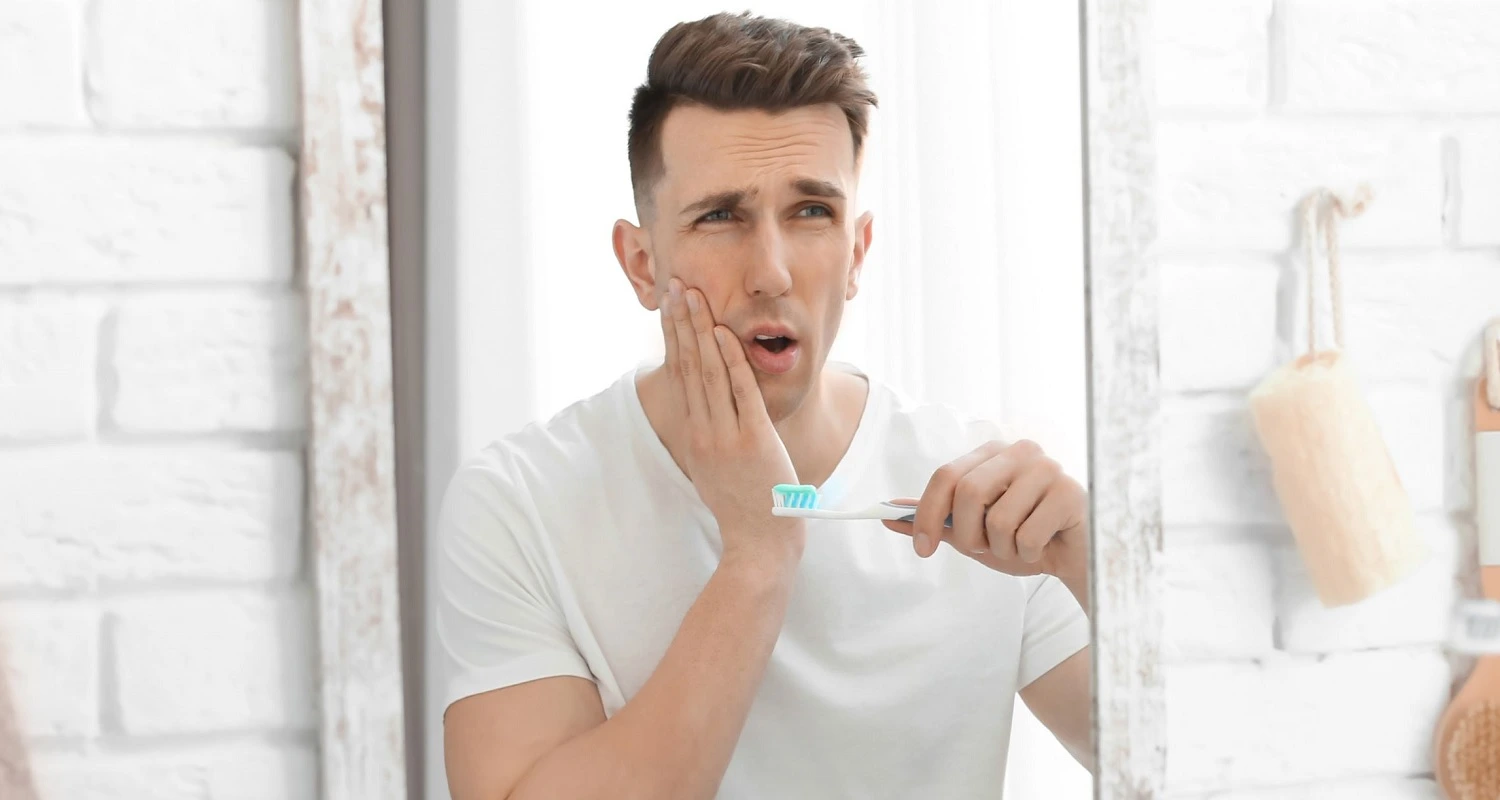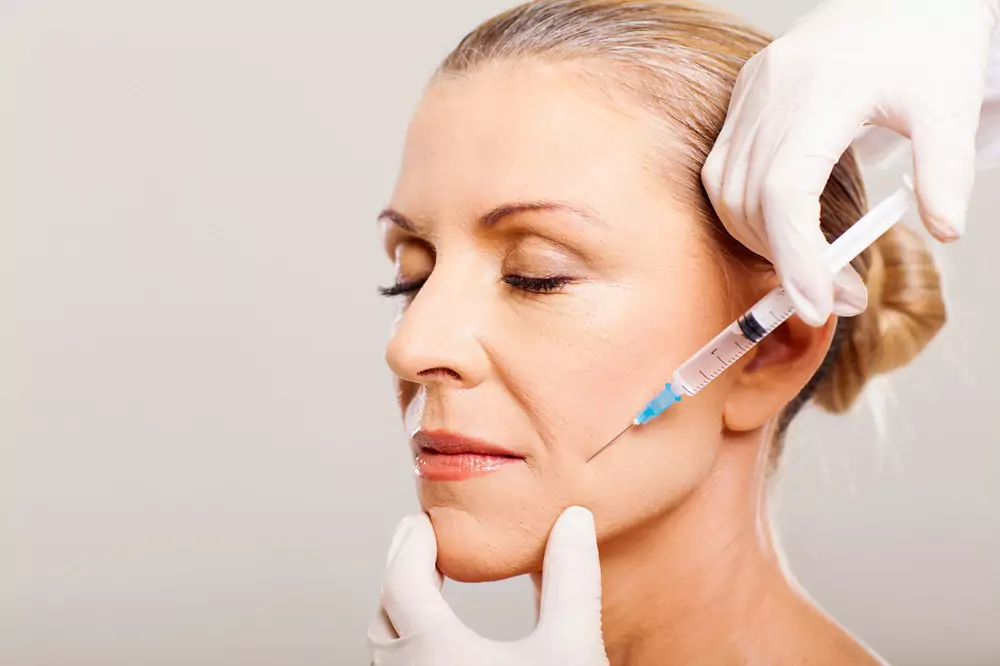Tooth sensitivity and discomfort when biting are often caused by cavities, gum recession, enamel erosion, or dental trauma. Identifying the source is essential for effective relief—consulting a dentist ensures proper diagnosis and long-term treatment.
Sensitive Teeth and Biting Discomfort: How to Find Relief When Biting
Having sensitive teeth can make an activity as simple and everyday as eating become a bad experience. Tooth sensitivity is a common problem that affects many people, and it can be caused by many factors. In this article, we will talk about sensitive teeth and biting discomfort. Also, how to find relief from these undesirable situations.
Why Does my Tooth Hurt When I Bite or Touch it?
Teeth are living organs, and perhaps more complex than they seem. Two layers of hard tissue, enamel and dentin, cover and protect soft tissue, called dental pulp. At the root, instead of enamel, there is a hard layer called cementum, covering the dentin.
The dental pulp contains blood vessels and nerves, and has several functions:
1. Formative: The dental pulp is responsible for forming dentin throughout life, especially when the teeth are attacked by cavities or subject to deep restorations.
2. The blood supply keeps the teeth vital.
3. Multiple nerve fibers inside the dental pulp inform the brain when stimuli – such as cold, heat, or pressure – affect the tooth. A painful signal indicates that something is not 4. right with our teeth.
4. When the tooth is attacked, the dental pulp reacts through several mechanisms. One is by attracting defense cells against bacteria or generating pain to alert us about damage done to our teeth.
We conclude that when a tooth hurts while biting or when touching it, something that is not right. It now requires a timely solution to avoid further damage.
Common Causes of Tooth Sensitivity or Biting Discomfort
There are many possible causes of dental hypersensitivity or pain. The most frequent ones are:
1. Caries
Cavities occur when there is poor dental hygiene, and the bacteria present in the mouth produce acids that destroy the enamel and dentin, leaving the dental pulp exposed – either partially or completely. A tooth with cavities can be very sensitive when chewing cold, hot, sweet, or acidic foods.
2. Dental treatments
- Dental cleaning: Professional dental cleaning consists of removing layers of debris or dental plaque, which have adhered to the teeth. By removing these layers, the tooth roots are once again exposed to cold, heat, and other stimuli. Thus, it may take a few days to get used to these sensations again.
- Restorations: When there are deep cavities, it is necessary to remove the infected dental tissue that has been softened by bacterial acids and place a dental restoration. If they are very close to the pulp, they can cause tooth sensitivity. Normally, this will decrease over a few days. If this does not happen, you should consult your dentist, as you may need additional treatment.
- Teeth whitening: A procedure that uses chemical compounds to break down dental stains. These products can be aggressive for teeth and cause dental sensitivity. If you would want more information on this topic, see our post on “Best Teeth Whitening“.
- Orthodontics: These treatments cause temporary inflammation in the bone that supports the teeth, generating discomfort when biting. It normally disappears after a few days.
3. Tooth erosion
This is normal wear and tear of the tooth enamel due to the action of acids. It can come from your diet or be generated by conditions such as bulimia or gastroesophageal reflux.
 4. Gingival recessions
4. Gingival recessions
These occur when the gum that covers the tooth roots shrinks or moves, exposing a part of the tooth that is normally not exposed to changes in temperature or comes in direct contact with air. Gingival recessions can be caused by gum disease (periodontal disease) or by brushing your teeth horizontally or very aggressively.
5. Dental infections
When dental cavities or trauma cause the death of the dental pulp, an infection can occur in the bone that supports the teeth. One of the most common symptoms is pain or discomfort when biting.
6. Dental cracks
In the event of trauma, fissures or cracks can develop in the teeth, allowing external stimuli to pass to the dental pulp. Depending upon their severity, these cracks could mean serious problems for your teeth.
7. Genetic factors
Some patients have genetic conditions that generate malformations in their teeth, causing poor enamel or dentin formation, il.e., the layers that protect the dental pulp.
8. Bruxism
Tooth clenching or grinding can cause the ligament that joins the teeth to the supporting bone to become inflamed; it can cause pain when chewing.
9. Occlusal trauma
Similar to what happens with bruxism, the tissue that supports the teeth can become inflamed when:
- Several teeth have been lost, and the remaining few must bear the burden of chewing.
- Following surgery or dental procedures, patients only chew all their food on one side.
- There are restorations too large for the space, generating an overload on some teeth.
- There are malocclusions (crooked teeth).
10. Wisdom teeth
When wisdom teeth are close to erupting, they can put pressure on or cause infections in nearby teeth, causing pain when biting.
Tips to control sensitive teeth and biting discomfort
As mentioned, in many cases, tooth sensitivity or discomfort when biting may be related to underlying dental problems that require timely care to be successfully resolved. However, here are some tips that can help relieve tooth sensitivity and biting discomfort:
- Toothpaste for tooth sensitivity: These products contain compounds that can seal the small dentinal canals that conduct temperature changes and generate sensitivity. Use it daily every time you brush your teeth and place it on sensitive areas, massaging it on the tooth and leaving it there to exert its protective effect.
- Use of plates for bruxism: If you grind your teeth while sleeping, it is advisable to use a special plate for bruxism. This helps to accommodate the jaw in a better position and prevents the teeth from being worn or mistreated.
- Replace missing teeth: To prevent only a few teeth from having to perform the chewing function alone, it is essential to replace missing teeth. This should help relieve biting discomfort.
- Go to your dentist: If you have episodes of tooth sensitivity when eating or chewing, you likely have a dental problem that should be treated by a professional. There are many solutions available, and a dentist is the right person to determine the one that best suits your case. Some common treatments include:
○ dental fillings
○ modification of existing fillings or crowns
○ endodontics
○ orthodontics
○ dental crowns
Conclusion
Sensitive teeth and biting discomfort are common problems for a variety of reasons, from underlying dental problems to genetic or traumatic factors. To alleviate such discomfort, knowing its origin is essential. Seeking professional care from a dentist for proper diagnosis and treatment is the best way to ensure good results.
Frequently Asked Questions
What is the reason my teeth are sensitive and I feel pain when eating?
Tooth sensitivity usually results from worn enamel or exposed tooth roots. However, sometimes discomfort in the teeth may be due to different causes, such as dental cavities, fractured or cracked teeth, deteriorated dental restorations, or periodontal diseases.
What causes the discomfort in my teeth when chewing?
Tooth sensitivity can be caused by multiple factors; however, thinning enamel or gum recession are common. The exposure of the internal layers of the tooth creates small conduits in the roots that facilitate the passage of stimuli to the central nerve of the tooth, causing sensitivity.
What are the reasons for discomfort when chewing or biting?
Pain when chewing or biting is usually attributed to certain dental problems, such as:
1. A tooth, crown, or filling that sticks out more than normal.
2. A deep cavity.
3. The presence of a dental abscess.
4. A crack in the tooth.
5. Gum conditions, such as periodontal disease.
6. Pressure or congestion in the sinuses or sinusitis.
7. Gingival retraction that exposes the tooth roots.
8. It is crucial not to neglect these symptoms.
What is the reason for sudden tooth sensitivity?
Sudden onset tooth sensitivity is usually due to thinning of the enamel, the protective layer that externally covers the teeth. When this layer is significantly reduced, teeth become more susceptible to sensitivity and a variety of other dental problems.
What measures to take to prevent dental pain when chewing?
The use of remedies with antibacterial properties, such as peppermint oil or salt water mouthwashes, has proven beneficial in relieving dental pain. However, if severe pain persists when chewing, it is crucial to consult a dentist without delay.
How do I know if my tooth pain when biting is caused by a crack or infection?
If your pain is sharp and happens only when biting, it might be a cracked tooth. If it’s throbbing or lingers, it could be an infection. A dentist can confirm the cause with an exam and X-rays.
Can wisdom teeth cause pain when biting down?
Yes, erupting or impacted wisdom teeth can put pressure on nearby teeth or cause inflammation, leading to pain when biting. This is common in late teens or early adulthood.
Does bruxism make my teeth hurt when I chew?
Yes. Clenching or grinding your teeth (bruxism) can inflame the ligaments and supporting tissues, making your teeth sore or painful when chewing. A night guard may help reduce the strain.
Share:
References
1. Allison, J. R., Stone, S. J., & Pigg, M. (2020). The painful tooth: mechanisms, presentation and differential diagnosis of odontogenic pain. Oral Surgery, 13(4), 309–320. https://onlinelibrary.wiley.com/doi/10.1111/ors.12481
2. Gurarie, M. (Dec 6, 2022). Tooth pain when you bite down on it: Causes and treatments. Verywell Health. https://www.verywellhealth.com/tooth-hurts-when-i-bite-down-5323174
3. Larson, J. (Jul 9, 2021). Why does my tooth hurt when I bite down or touch it? Healthline. https://www.healthline.com/health/dental-and-oral-health/my-tooth-hurts-when-i-bite-down-or-touch-it
4. Lee, J.-H., Kim, D. H., Park, Y.-G., & Lee, S. Y. (2020). Chewing discomfort according to dental prosthesis type in 12,802 adults: A cross-sectional study. International Journal of Environmental Research and Public Health, 18(1), 71. https://doi.org/10.3390/ijerph18010071
5. Parkdale Dental Centre. (Apr 23, 2020). 7 possible reasons why your tooth hurts when biting down or chewing. Parkdale Dental Centre. https://parkdale-dental.com/ottawa-dental-blog/toothache/tooth-pain-when-bite-down-chew/
6. Tooth sensitivity: What treatments are available? (Dec 7, 2021). Mayo Clinic. https://www.mayoclinic.org/es/healthy-lifestyle/adult-health/expert-answers/sensitive-teeth/faq-20057854
-
Nayibe Cubillos M. [Author]
Pharmaceutical Chemestry |Pharmaceutical Process Management | Pharmaceutical Care | Pharmaceutical Services Audit | Pharmaceutical Services Process Consulting | Content Project Manager | SEO Knowledge | Content Writer | Leadership | Scrum Master
View all posts
A healthcare writer with a solid background in pharmaceutical chemistry and a thorough understanding of Colombian regulatory processes and comprehensive sector management, she has significant experience coordinating and leading multidisciplina...



